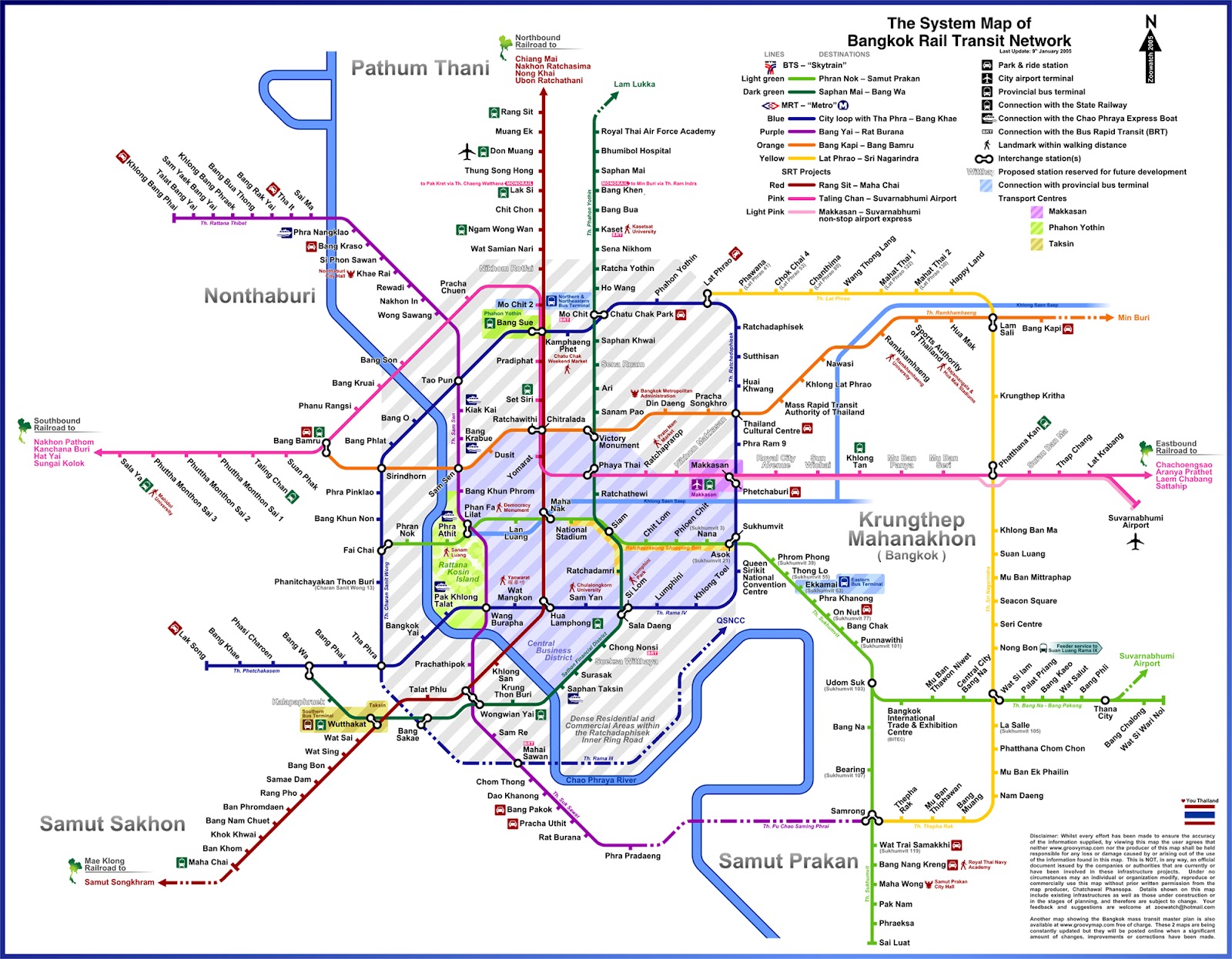Nine years after their construction had started, the two extensions of the MRT Dark Blue Line have finally set the dates for their first test runs.
The opening of these extensions will make the Dark Blue Line the first circular line in Bangkok. This will make Bangkok a more connected city, opening new opportunities for development.
At present, the MRT Dark Blue Line is the second most popular mass transit line in Bangkok with 19 trains carrying 350,000 passengers per weekday.
CBRE believes that the number of its passengers will continue to grow as the line extends and more trains are introduced into the system.
Last year, Bangkok Expressway and Metro Plc (BEM) had signed a contract to buy 35 more trains which will be gradually added into the system, increasing from 19 trains to 54 trains.
By the end of 2019, four new trains will be added into the system when the first extension from Hua Lamphong to Lak Song is opened, increasing the capacity to more than 400,000 passengers per weekday.
Once the second extension from Tao Poon to Tha Phra is operational in 2020, eight more trains are scheduled to be added into the system, increasing the capacity to 600,000 passengers per weekday.
Within the next five years, five under construction lines, connecting midtown and suburban areas of Bangkok to the MRT Dark Blue Line, will be completed.
These five under construction lines include the BTS Light Green Line (Mo Chit – Khu Khot), the Yellow Line (Lat Phrao – Samrong), the Light Red Line (Taling Chan – Bang Sue), the Dark Red line (Bang Sue – Rangsit), and the Orange line (Thailand Cultural Centre – Minburi), of which the first four lines are expected to be completed in 2021 and the Orange line is expected to be completed in 2024.

The completion of these five future mass transit lines will feed more passengers to the MRT Dark Blue Line while creating new nodes at interchange stations; namely, Bang Sue, Lat Phrao, and Thailand Cultural Centre stations where some developers have already planned to develop large-scale developments.
When all the five future lines are operational and planned large-scale developments are completed, all of the 35 new trains will need to be added into the system to match the increasing demand. With a total of 54 trains, the MRT Dark Blue Line will be able to handle nearly 1 million passengers per weekday, nearly tripling the current capacity.
Demand from this one million people will drive emergence of new CBDs and key areas, especially at interchange stations, which will give valuable opportunities for property developments in the near future.
CBRE believes that the expansion of the mass transit network will change how Bangkokians live, work and play and Bangkok will become a more defined city with each corner of the city connected to another by at least one mass transit line.
An article written by Pakapon Utaobin, an analyst at Research and Consulting, CBRE Thailand for Bangkok Post dated 26 June 2019.







